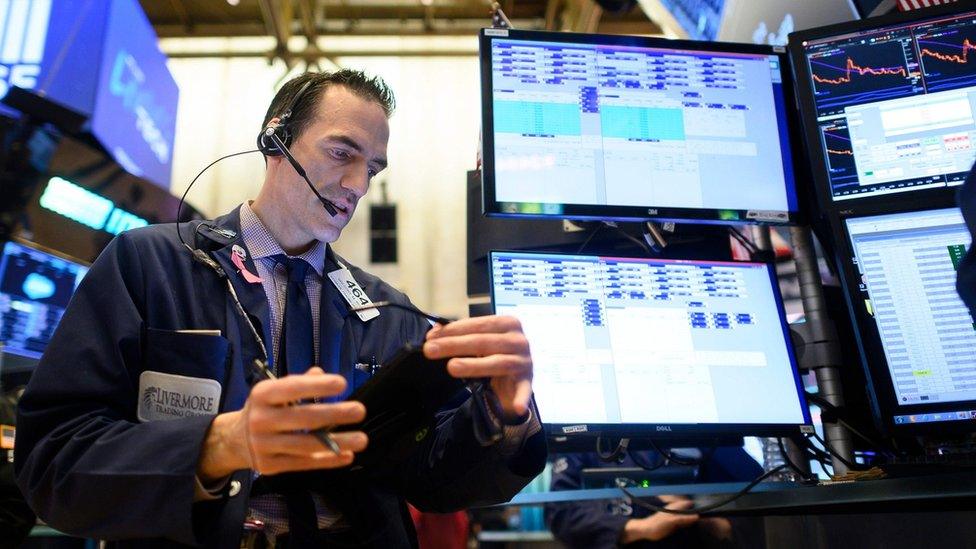New York: The city that never sleeps on lockdown
- Published
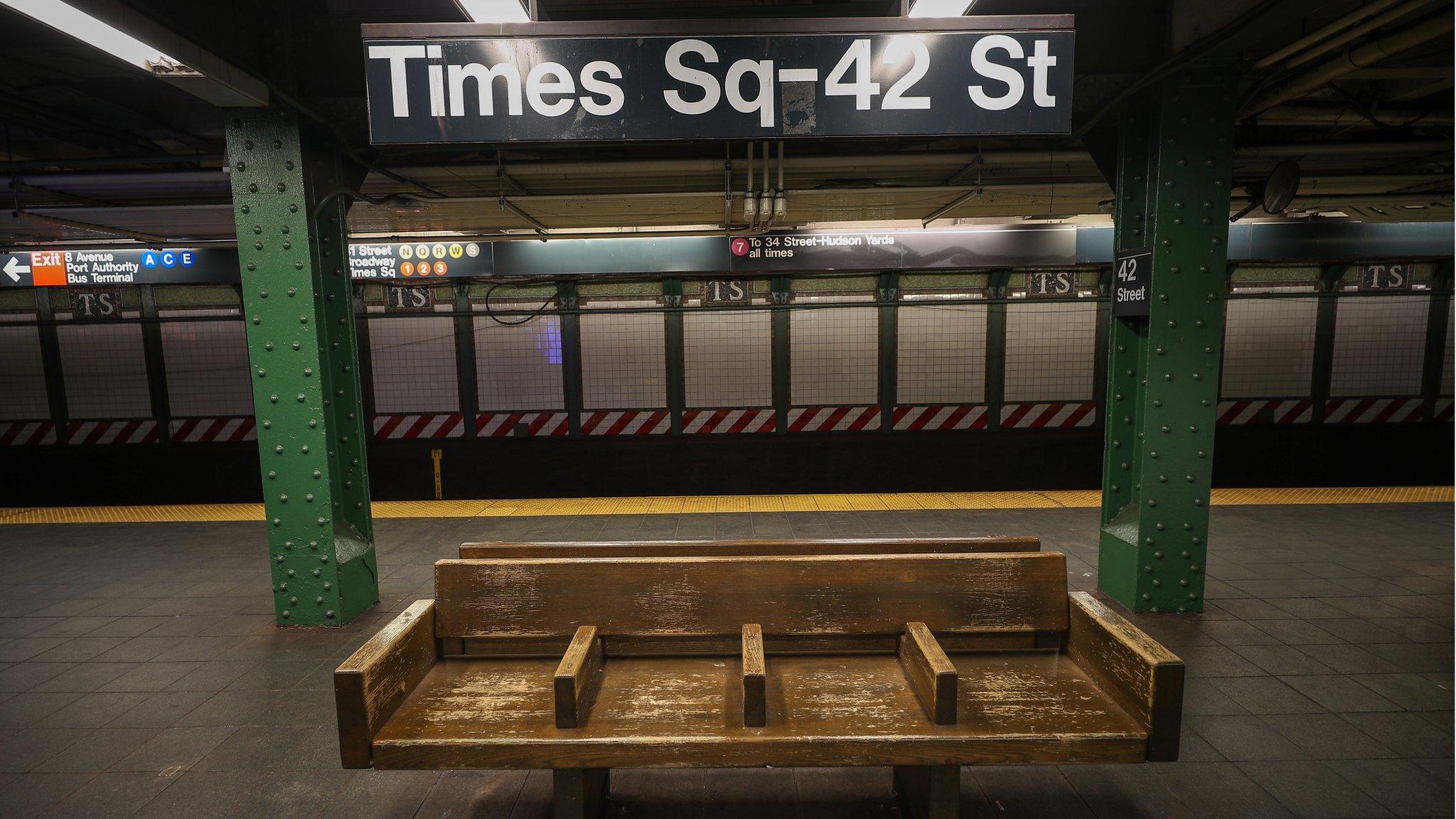
Crowds in downtown Manhattan thinned last week as officials sounded alarms about the spread of the coronavirus. By Monday morning, the city that never sleeps had become a ghost town.
Museums, theatres and libraries were closed. Schools were shut. Plazas, typically packed with tourists and office workers, were deserted. Restaurants and bars were empty, as staff prepared to comply with orders limiting businesses to take-away and delivery.
Thousands of jobs are affected, as barbers, gyms and other businesses cease operations for the foreseeable future. At the few places still open, cuts are on the horizon.
At Ruchi's, an Indian restaurant near the World Trade Center, staff worked reduced hours last week, as sales dropped 80%. But now the place is empty.
"It started two weeks back and last week, it was bad but you see, this is horrible," said manager Protima Sumi, gesturing at the tables around her.
Ms Sumi said she is worried about how she will provide for her staff. "If we don't have money, we can't give it to them," she said. "I'm just hoping we will survive."
'It's surreal'
Last week New York became the American state with the highest number of confirmed coronavirus cases. As of Tuesday there were more than 1,300, many of them in the city.
As officials take steps to limit the spread of the disease - including bans on gatherings of more than 50 people - they are contending with the prospects of an economic slowdown the likes of which America's largest city has never seen.
Restaurant sales are expected to drop by 80%; property and retail sales by 20%, while hotel occupancy rates plunge to 20%, according to forecasts by New York City Comptroller Scott Stringer. And that was before the mayor said he was considering curfews and orders to shelter in place.
"It's surreal," said construction worker Patrick Conway, as he surveyed the desolate halls of the Brookfield Place shopping mall near the World Trade Center.
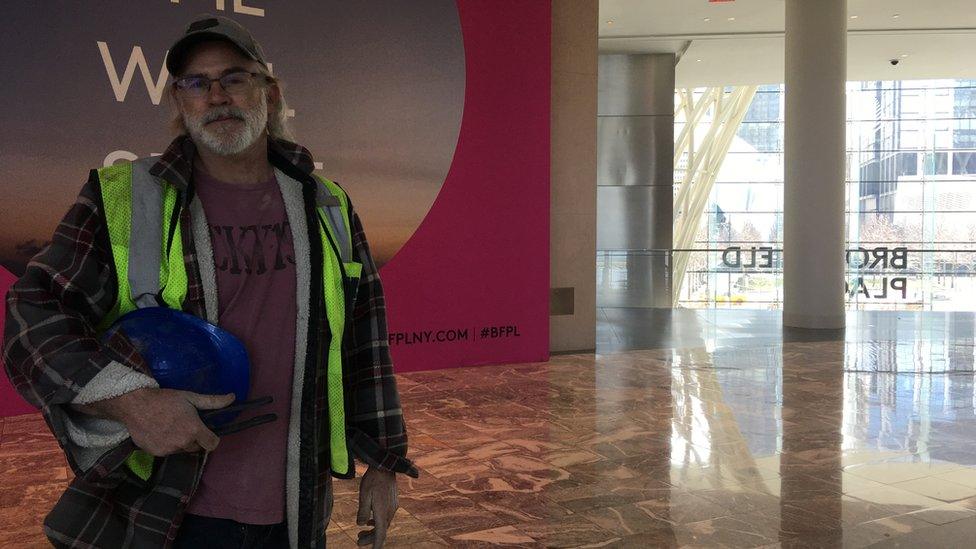
Patrick Conway cares for his 86-year-old father
Mr Conway, who cares for his 86-year-old father, is sympathetic to the people staying away. He is also avoiding interactions, staying out of restaurants and movies, packing his lunch and driving to work, instead of commuting by bus and subway.
"I think this is the most scared I've ever been," he says. "Because it's not tangible. You can't see it and everyone is suspect."
But the 56-year-old is also worried that his job site will get shut down, following the example of the many other businesses in the area.
"That's where the pressure for the working guy is, we don't have the luxury of telecommuting," he said. "For me financially, it's a big hit. If I don't work, I don't get paid."
'Most serious threat'
Millions of people in the US, which does not guarantee sick leave, are in a similar position. Congress is now debating a bill that would grant two weeks of paid time off for those affected by the outbreak, but many economists say much more needs to be done to avert an economic crisis.
Jason Furman, a professor at Harvard University and former economic advisor to then-President Barack Obama, is among those recommending the federal government send $1,000 (£828) cheques to every person over 18, and $500 (£414) for children, as immediate relief.
"This feels like the most serious threat since the financial crisis," he said. "There's not a good reason to expect it to be worse than the financial crisis, but no one knows."
'We need bold action'
Nationwide, forecasters are predicting a sharp contraction in coming months, as businesses grapple with a slowdown by shedding workers. These laid-off workers are likely to then reduce their spending, which is the main driver of the US economy.
In a note on Monday, analysts at IHS Markit said the US economy will shrink 0.2% in 2020. But such outlooks are updated frequently. Already others are predicting worse.
"This is hopefully a temporary situation but we need bold action," said Mr Stringer. "New York's economy impacts not just us but the national and international economy... It's in everybody's interest to watch what's happening here."
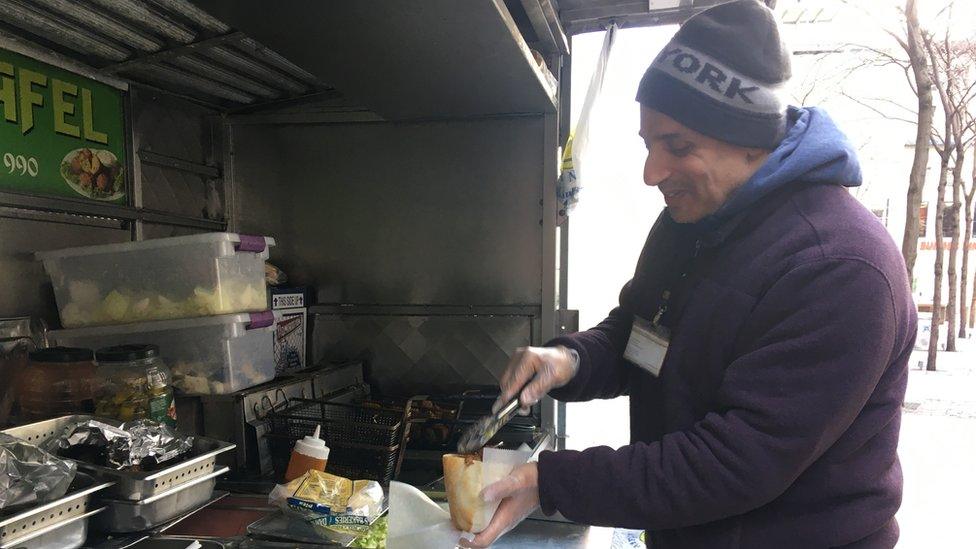
Yasser Kamel said he had had practically "zero business"
Yasser Kamel, whose family has run the popular Sam's Falafel food truck in Zuccotti Park since 1990, said business is as bad as he's ever seen it. Normally, three people man the cart, which is rarely without a queue. On Monday, it was just him, for a handful of customers.
Mr Kamel said he will likely stay home tomorrow, rather than waste money preparing food that doesn't get purchased.
"I'm not scared about the disease ... but for the business, it's a really really big thing," he said. "The situation is serious and ... it's more than one family that will be trouble."
- Published24 January 2021
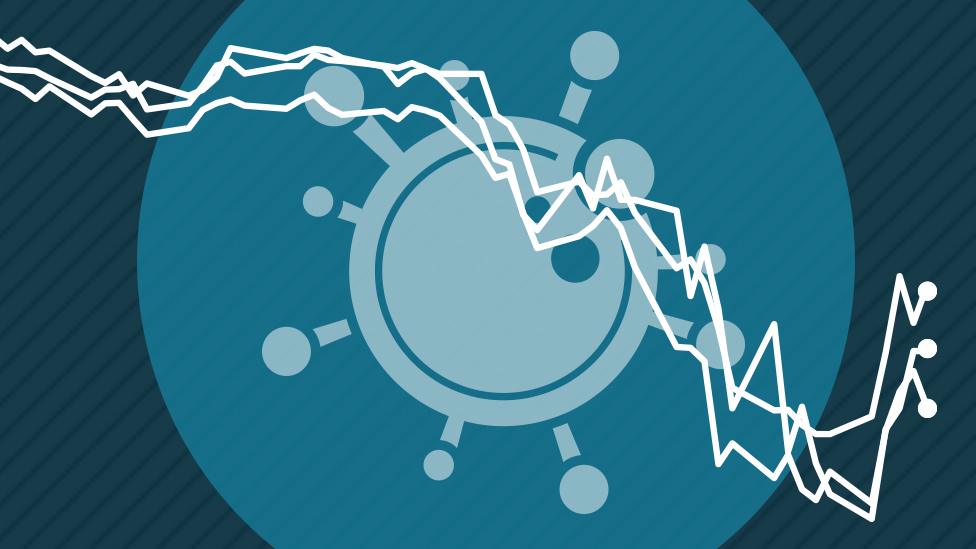
- Published17 March 2020
